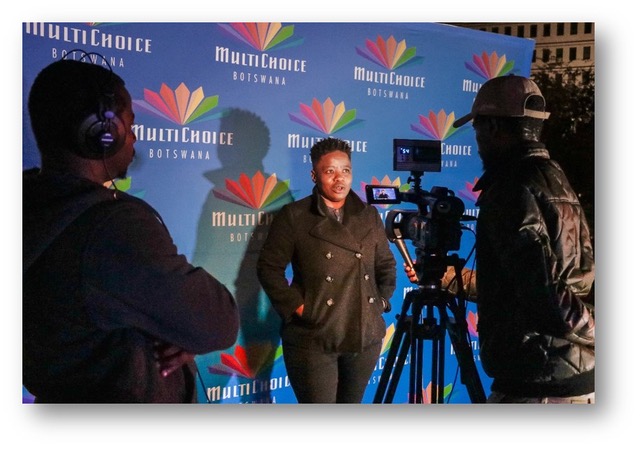From Black Panther star Danai Gurira in Hollywood to award-winning director Sarah Bletcher right here on African soil, Southern Africa has produced some of the most talented women filmmakers. Whether on TV or film, behind or in front of the camera, these women – of all ages and backgrounds – have pioneered and made innovations in the industry, simultaneously flying the Southern African flag high.
With the achievements, there is still a lot of work still to be done to ensure an inclusive and equal on-screen community, especially for women in Southern Africa. Through dialogue and efforts such as the newly opened Multichoice Talent Factory – a film and TV academy with hubs in East, West and Southern Africa – which has selected 20 students (10 women) in the region to develop their skills, strides are being made to equip and empower young female TV and film creators of Southern Africa and create a sustainable and gender-balanced industry.
One of these individuals is Motswana director Tumi Sejoe, who has worked on some of the world’s most famous film sets. Some of her achievements include being third assistant director on the internationally acclaimed series, The No. 1 Ladies’ Detective Agency, and third assistant director on award-winning biographical film A United Kingdom about the country’s first president Seretse Khama and the controversial interracial romance with his wife Ruth Williams Khama.
Tumi, who in 2001 completed a mentorship programme at the BBC in London after having studied at College of Northwest London, has also been recognised for her own original films.
In 2016, her directorial debut, a short film titled The Awakened Spirit, was selected to show at the Cannes Film Festival.
It is about protagonist Segametsi’s journey to find her truth by revisiting the traditional ways of the culture she is born into, the adventure drama was part of the inaugural European Film Festival in Botswana in August 2018.
Currently director of new magazine show UnpluggedBW, Tumi was invited to the Durban International Film Festival 2018’s Talents Durban, a development programme that included 19 filmmakers from 13 African countries. Tumi says that although the film industry is male-dominated, she has been fortunate to work with people who don’t treat her badly because of her gender.
“Our generation has better resources to tell the stories we want to tell,” Tumi noted.









